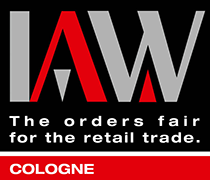Alternatives to Amazon: 3 sales platforms to successfully sell products
In addition to their own online shop, retailers can also use a wide range of e-commerce platforms and thus make use of existing infrastructure. Amazon is usually the first sales platform that comes to a merchant’s mind. The estimated net worth of $1.7 trillion reflects Amazon’s dominance in the e-commerce sector. Hardly any company puts the competition in the shade. A recent survey found that 55 percent of all people who shop online start their search on the world-renowned and established platform Amazon. This is noticeable: On average, the online retailer and market leader sends out 1.6 million product orders daily.
Why you should use an alternative to Amazon for your e-commerce business
As a retailer, ignoring these platforms and not being present on Amazon accordingly costs you about half of the potential market. There are still numerous good reasons to look for alternative sales platforms. From the perspective of many experts, the crucial reason is the dependence on one authority. Putting everything on one card carries a risk that every poker player fears. Relying on a single sales platform means that, in extreme cases, blocking a seller’s account can result in the loss of all sales revenue. Without an alternative sales platform, the business is crippled. Using multiple marketplaces creates a flexibility that minimizes the risk of a catastrophe if something really goes wrong. Additionally, other platforms bring a spirit of autonomy, which can quickly turn an FBA seller into a brand operator through a change in mindset. Additionally, other platforms provide room for experimentation to determine which is best suited as a sales platform for one’s own products.
Each platform also offers numerous additional advantages. The question is, where does the other half of potential online shoppers search for their products? Are there real alternatives to the giant Amazon? What other platforms are there? Which of these platforms appear worthwhile from a merchant’s perspective? What are the advantages and disadvantages from a merchant’s perspective? Here you will find an insight into three alternatives to Amazon’s merchant program, the FBA program.
What to look for when searching for an Amazon alternative
As always, before looking for alternatives to Amazon, you need to consider what you want to achieve. You must consider your products and your target customers. Specific products, such as handmade or designer products, should be placed on a different platform than technical products. There is a growing list of alternatives to Amazon that are often better suited than the shopping giant in individual cases. When choosing a sales platform as an Amazon alternative, the following should be considered:
Easy to use
New and existing products should be able to be configured quickly and securely to expand or adjust the product offer in a matter of seconds. Additionally, offers on the platform should be able to be sold in a legally secure manner. You also need to put yourself in the customer’s shoes. Research by Digital Commerce 360 and Bitrate shows that ease of use is a crucial factor. Test the platform yourself and pay attention to the following: navigation, checkout process, payment methods, and delivery options.
User types
It is important to check which sales platform attracts which users and customers. The platform must represent a “good fit” with one’s own product range.
Fees
The financial fees of a platform can eat up a considerable portion of the profit. Depending on the fee structure, some platforms may not be suitable for sales. There are helpful apps and calculators that can determine the fees incurred in advance.
Amazon Alternative 01: The eBay merchant program
The most well-known alternative to Amazon is eBay. Since its introduction in 1995, eBay has undergone significant changes. Over the years, eBay’s focus has shifted from a collector’s market to a more product-based market. Notable brands such as Rolex, Hasbro, and Microsoft offer their merchandise through the eBay brand outlet. The platform also continues to provide space for unusual items or collectibles.
Pros and Cons of eBay as an Alternative to Amazon
On eBay, online retailers have the option to set up a shop as a sales platform. eBay offers commercial sellers three different shop variants: basic, top, or premium. However, the commission model is not immediately apparent. The variants differ mainly in the number of fixed-price offers and the monthly basic fee. Because in addition to the fixed price fees, eBay charges other premiums for auctions. Additionally, the fees are similar to those on Amazon. These are usually less than 10 percent. The free eBay fee calculator is the easiest way to determine the costs involved. Unlike Amazon, eBay’s advantage lies in creating individual templates. The reach of eBay is also considerable, although not as strong as that of Amazon. For many customers, eBay has been a household name for years. Accordingly, the platform also receives a vote of confidence, which in turn benefits the merchants. However, a disadvantage could be the still close connection many customers have with the auction house. For a large number of them, eBay is still primarily an auction portal rather than an online store for new merchandise.
Some arguments in favor of selling on eBay are:
> A wider selection of product categories
>Multiple payment options, including credit/debit card, PayPal, local payment methods, Apple Pay, Google Pay, and gift cards.
>Improved branding through eBay shops and marketing materials
For which online retailer is the eBay merchant program suitable?
Similar to Amazon, eBay can be useful for any online store operator. The creation of custom templates is likely to be of particular interest to retailers who value their own brand.
Amazon Alternative 02: The LadenZeile merchant program
The concept of LadenZeile is relatively simple: “All shops under one roof.” This means that LadenZeile.de offers its users the ability to compare products from 4,300 shops on one website or in one app. According to its own statements, LadenZeile is a service provider in the area of performance marketing for these shops. It offers smaller shops the opportunity to increase their visibility and the recognition of their brand. Global players like Amazon are not considered competitors – not only because the platforms differ significantly from each other, but also because LadenZeile acts more as a partner for these shops. The sales platform offers products on its site, and in return, the operators receive a commission per click (CPO). This creates a typical win-win situation.
Pros and Cons of LadenZeile as an Alternative to Amazon
LadenZeile has very good visibility, so shop owners with well-placed products should be successful. However, there are no customizable templates. The platform must be understood as a search engine that helps users find exactly the products they are looking for and encourages browsing through various filter and search options. Online retailers with their own shops can benefit greatly from this massive product search engine. Additionally, the assortment is limited, as the shopping portal LadenZeile focuses on fashion, furniture, and lifestyle products. The categories for cars and motorcycles are missing, as are those for computers and electronics. Additionally, LadenZeile requires a listing of at least 150 products.
For which online retailer is the LadenZeile merchant program suitable?
LadenZeile is primarily suitable for online shops in the fashion and clothing sector. However, jewelry, watches, toys, and office supplies can also be offered. Due to its specific focus on lifestyle, the portal may be of interest to corresponding online shops. However, the minimum listing must be observed. Accordingly, online shops with technical products are unsuitable for LadenZeile.
Amazon Alternative 03: Avocadostore’s merchant program
Avocadostore is one of the largest niche marketplaces focused on sustainable and ecologically responsible products. Avocadostore was founded in 2010 with the idea of creating an online platform where customers could find a sustainable alternative for every conventional product. According to its own information, more than 900 providers, including designers, green start-ups, and well-known labels, now sell their sustainable products on the marketplace.
Pros and cons of Avocadostore as an alternative to Amazon
“Every product sold on Avocadostore must meet at least one of Avocadostore’s ten sustainability criteria. Which criteria are met and why are displayed directly on the product. Additionally, customers can ask the provider questions directly about the product.” This is the marketplace policy that every merchant must comply with in order to be active on the platform as an Amazon alternative. The specific focus on a target group can be seen as a major advantage or disadvantage of Avocadostore. Consequently, the own assortment can be specifically selected and sold. Avocadostore also does not charge setup fees. After a one-time registration fee, a monthly marketplace fee and a 17 percent brokerage commission are due. In general, compared to other marketplaces, visibility is still relatively low due to the limited target group.
For which online retailer is the Avocadostore merchant program suitable?
It is clear that the e-commerce platform from Avocadostore is not suitable for every shop operator as an Amazon alternative. However, any online retailer looking for an alternative to Amazon and serving a target group that asks for ecological products is exactly in the right place here. Partnershops that cannot guarantee compliance with one of the 10 criteria can pack up right now. Those who operate in one of these niches can greatly benefit from the recognition of Avocadostore.
Keep an eye on other alternatives: The Kaufland retailer program (formerly real.de)
The pricing model is designed to be very transparent. For selling items on Kaufland.de, a monthly basic fee of 39.95 EUR net applies. Unlike Amazon, where any redirects to your own shop are sanctioned, Kaufland supports these indirectly. For an additional 9.95 EUR, Kaufland.de offers its retailers the option to display a link in the Kaufland.de retailer shop to their own external online shop. So far, there have been very few reports on Kaufland’s new retailer program, so we recommend keeping an eye on this sales platform and taking a test if in doubt.
Walmart Marketplace’s merchant program as an alternative to Amazon in the USA
Amazon dominates online commerce, that much is certain. In the USA, the shopping giant Walmart is slowly but surely regaining market share. Current sales figures show that Walmart’s e-commerce sales have increased by 74 percent, according to the company. Walmart’s plan to present a promising alternative to Amazon seems to be working. Online-Händler, die den umkämpften amerikanischen Markt ins Visier nehmen, sollten sich daher mit dem Walmart Marketplace auseinandersetzen. As a challenger to Amazon, there could hardly be a better candidate than the American retail leader Walmart.
Don’t just evaluate retail programs and sales platforms based on their reach
Amazon and eBay offer the largest reach in Germany, which is why many retailers report that their marketplaces are very important for their own sales. Marketplaces like LadenZeile or Avocadostore are just as good alternatives to Amazon and eBay. Mainly when it comes to special assortments. It is important to evaluate one’s own situation individually and to thoroughly examine all possibilities. Additionally, alternative platforms often entice with more favorable terms and greater freedom in creating templates. It’s not always the case that the biggest is the best.



